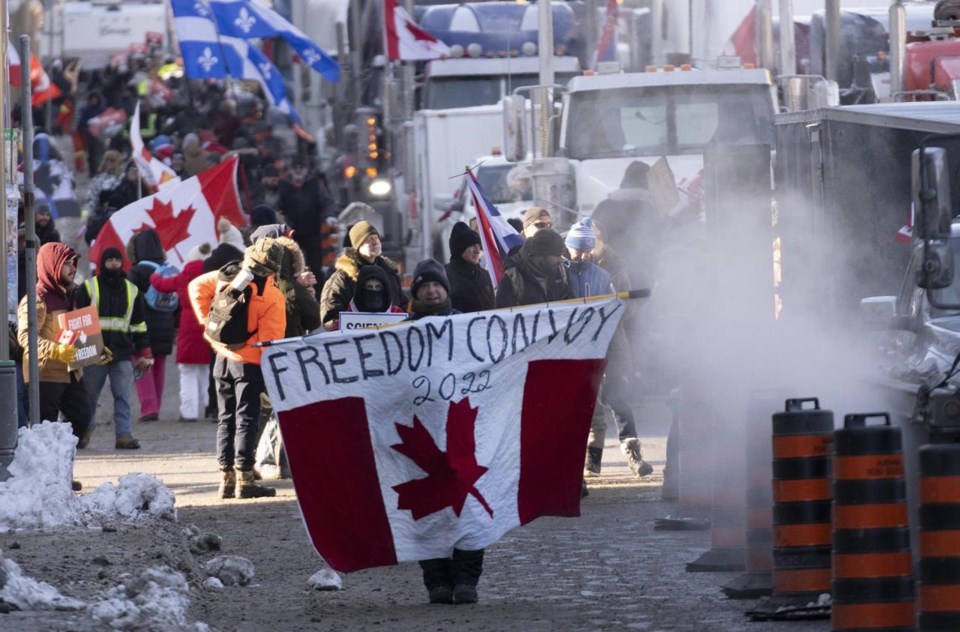Ottawa Mayor Mark Sutcliffe says the city needs a new deal with the federal government for policing the parliamentary district and the national capital.
The report from the Public Order Emergency Commission, released Friday, said confusion between various police forces around Parliament Hill made policing the "Freedom Convoy" demonstrations last year "unnecessarily complicated."
Sutcliffe told reporters at a press conference Friday afternoon that Ottawa taxpayers are "burdened" with the cost of policing the national capital, something other municipalities don't have to consider.
The mayor said he has yet to read the 2000-page report but is looking forward to the recommendations.
"Going forward, we want to see something that recognizes the growing number of threats and demonstrations and other events that are happening in the capital so that we can work proactively and gather intelligence and have the right resources in place," said Sutcliffe.
The RCMP, Ottawa police and the Parliamentary Protective Service have varying roles for handling policing and security on and around Parliament Hill.
The commission's report makes 27 different recommendations related to policing, including one to specifically fix the "jurisdictional divisions" in downtown Ottawa.
The city also has to decide how to improve communications between its police force and city council after an internal audit said police didn't share enough intelligence with the city about what was happening as thousands of demonstrators occupied the downtown.
Coun. Catherine Kitts said communication was so poor that she and other colleagues learned through social media that ex-police chief Peter Sloly resigned in the middle of February.
"I really felt like my ability to do my job and communicate with residents was compromised as some of my colleagues shared feeling (left) in the dark," Kitts said.
The city's auditor general, Nathalie Gougeon, said the city has been "stretched thin" after last winter's protests, the pandemic and the May derecho storm that is still affecting residents in the Ottawa area.
Gougeon said the three audits that were tabled on Feb. 8 about the responses by the city, Ottawa police and the police services board to the "Freedom Convoy" may not be the only reports on the subject.
In the coming weeks, Gougeon will be looking into the Public Order Emergency Commission's report to see if there are unanswered questions for the city, including around planning for protests, appropriate use of intelligence and gathering of information.
"We had a very narrow scope," said Gougeon.
"If the report does not cover those particular areas we could be open to doing additional work."
Gougeon said city staff are beginning to implement the recommendations in her reports, along with police and the police services board.
This report by The Canadian Press was first published Feb. 17, 2023.
———
This story was produced with the financial assistance of the Meta and Canadian Press News Fellowship.
Cindy Tran, The Canadian Press



